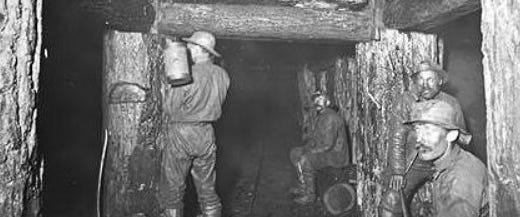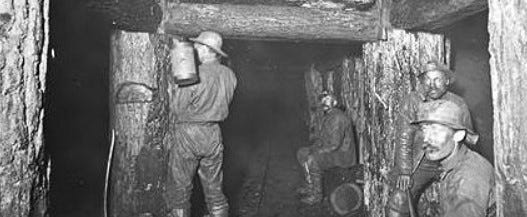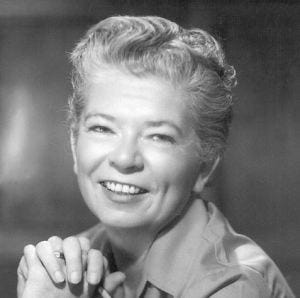The Trouble in Thor gets its Upper Peninsula right.
And while it’s at it, Charlotte Armstrong’s good-if-not-great novel has ample literary merit, with a subdued but unrelenting tension providing credible motivation to the well-delineated characters. Armstrong deftly shows how a company-town’s conventions and rigid social structure smother and confound the town’s inhabitants, especially its women.
Armstrong (1905–1969) was an accomplished writer with an Upper Peninsula pedigree. She was born and raised in Vulcan, the model for the fictional town of Thor. In a thirty-year career, she wrote twenty-six novels; two of her plays were produced on Broadway; six of her works were turned into movies; and her poetry was published in the New Yorker.
Her mother was a native of Republic; her father the chief engineer for Penn Iron Mining Company. Frank Armstrong’s engineering innovations helped to make Michigan’s iron mines among the first in the world to use electric power. (1)
Sharing her father’s fascination for how things work, Armstrong fills her novel with engineering details:
Power there had to be, for mines are wet…The pumps must run. Almost seventy-five percent of the power generated went, in fact, to do this pumping. At West Thor, for instance, eighteen hundred gallons of water had to be raised twelve hundred feet every minute, day and night. (2)
Her descriptions of the mine are as technical as they are literary:
Men first go down into the ground in a vertical shaft, a straight line, the first dimension. On this they measure off units of one hundred feet. At each one hundred feet within the ore body a level is established.
They attack [the ore] from below. They begin to take [it] out of a room, drilling and blasting it down in units called sets. The sets are the measure of the timber that goes in to hold the roof and the walls apart.
In addition to the mechanics of mining, Armstrong knows the mechanics of the miners’ lives:
Housing was necessary…The Company must provide, but the Company saw no reason to be extravagant about it.
The little dwellings were perfectly square boxes with two windows on each side and a peaked roof for a cover. Inside, the square floor space was evenly divided into four smaller squares and–except for a tiny staircase that went up out of the back room on the right to two small oblongs under the eaves—that was the house. There were electric lights, but no gas stoves. There was a sink in each kitchen, but no other plumbing.
Armstrong’s writing is evocative if restrained. When rescuers finally reach the desperate miners, she lets the moment unfold quietly:
Down below the striving men crept, pried, balanced, prayed. The entrance they were spinning like a thread in the hard dark touched on the place they were seeking and became an exit from it.
And when she writes about the landscape of her childhood, ravaged by fifty years of iron mining, the pathos is spare:
Thor Lake lay sparkling, looking more innocent than it was. Nobody bathed in Thor Lake. The rumor was that it had no bottom. The truth was waste water and certain poisons went into it, so it was a wicked, useless little lake except to look at…
Morning flooded the wooded hills. Where the green shadow did not fall on the brown floor, the glades and alleys were aromatic with the warm pine. But the hill was not so solid as it looked, and, in its core, held no peace and no perfume.
Charlotte Armstrong left the U. P. when she was eighteen and never lived there again. Though she may have left God’s Country, apparently it never entirely left her:
Down the lakes must come along the flat ore boats in slow parade, low-lying, and hard to see from shore except by the smear of their smoke against the sky, carrying with stately persistence the raw ore…She thought of the ore that would yet be torn out of the earth…and ride the long water.
Notes
The Virtue of Suspense: The Life and Works of Charlotte Armstrong by Rick Cypert (Cranbury, NJ, Susquehanna University Press, 2008)
The Trouble in Thor by Charlotte Armstrong (New York, Coward, McCann & Georghegan, Inc., 1953)







I confess I haven't read anything by Charlotte Armstrong. My bad! I'm going to fix that.